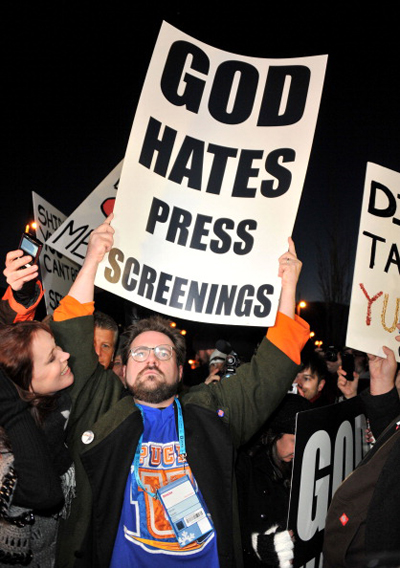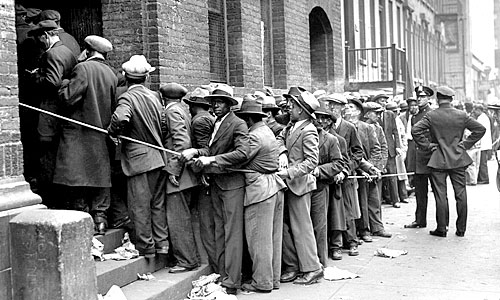This is another post in my series Zen and the Art of Teaching. You can see them all here.
I don't want to bury the lead: I was
asked not to talk about Banned Books Week, and I obliged.
Now for the back story. I'm currently
student teaching for four months outside of Boise, ID. I teach six
classes of freshman U.S. History. However, the class is not mine. I
have a mentor teacher who is technically in charge, regardless of
which one of us is in front of the classroom on any given day.
In my class I use the white board for a
lot of random things, rarely do they directly relate to teaching. I
have a area dedicated to "things I need to look up," and an
area called "random facts." In my first class of the day I
decided to add another category, a list of the most commonly banned
or challenged books in the United States last year to celebrate
Banned Books Week.
Wondering what that list entailed? No
problem, I copied it directly from this site
And Tango Makes Three, by Peter Parnell and Justin RichardsonThe Absolutely True Diary of a Part-Time Indian, by Sherman AlexieBrave New World, by Aldous HuxleyCrank, by Ellen HopkinsThe Hunger Games, by Suzanne CollinsLush, by Natasha FriendWhat My Mother Doesn’t Know, by Sonya SonesNickel and Dimed, by Barbara EhrenreichRevolutionary Voices, edited by Amy SonnieTwilight, by Stephenie Meyer
Notably, The Hunger Games and Twilight
stuck out to my students because the majority have either read or
heard about them. I mentioned that this was just a list from 2010 and
that some of their other favorite books, like Harry Potter, were
often banned as well.
This lead to a short (less than 10
minute) discussion about why, where, and how books were banned.
During this I mentioned that books were most commonly banned for sex
or drug use- which from the list above you can see is correct.
That was all. I did not endorse any of
the books (although I have endorsed The Hunger Games on other days)
and I specifically stated that none of these books were required reading.
I posted them merely to entertain and
create a discussion. Which it did.
Until I was asked not to do it again,
and erase the list entirely.
Reasons given:
"We live in a conservative area."
"I don't want parents to come in angry saying, 'You told my child to read this.'"
"They are just freshman."
I did as requested. The list was
erased. No more conversations were held about Banned Books Week.
The students are lesser because of it.
Not only is it a great conversation to have about censorship and
control and the role that different organizations play in our lives;
but it allows students to express their thoughts on a topic that is
centered around them.
I know sometimes my students can feel a
disconnect to the historical topics we discuss in class. Yet, when I
try to address a relevant and prevalent issue that involves people
their age, I am censored.
Google Maps of Banned Books. View Book Bans and Challenges, 2007-2011 in a larger map.
The entire purpose of Banned Books Week is to celebrate the freedom to read. It was started in 1982 and is organized by the American Library Association.
A movement that is aimed at creating a positive atmosphere where people of all ages can choose what they
wish to read should be celebrated at every opportunity. I constantly
hear today in classrooms about how terrible books are, how boring books are and how reading is stupid. If what it takes to interest a
student in reading is to entice them by telling them the book was
banned- I'm all for it.
I want my students to read banned
books. I want them to read good books and bad books. I want them to read
anything and everything they choose to. Because what I want most of
all is for my students to read.
I was censored for talking about
censorship.
I am angry and frustrated, mostly at
myself, for not taking a stand on an important issue. As someone who
aspires to teach children how to become adults, I am ashamed at my
lack of ethical fortitude.
I can only hope and strive to be
better.
"Hiding aspects of your personal
life in order to get hired or attract more business is a shameful
practice." -Steve Pavlina
Once again my posts begin with
inspiration from another source. I started following Steve Pavlina on
Google+ after he was recommended by Leo Babuta, also on Google+.
If you're not keeping track, that's
three people that you went through to get the above quote. You went
through me, I went through Leo, which lead me to Steve. The internet
is wonderful. We are slowly moving towards becoming one...but today
is not the day for my crazy awesome theories.
Today is a day for simplicity. That's
what I find Steve Pavlina brings through his posts and comments on
Google+. That quote above lead to numerous comments from Steve's
followers, most driven by anger.
"Equally shameful are businesses that make hiring decisions based on said aspects of one's personal life."
"Will YOU hire me? Will someone you know hire me? Should I lessen my chances at any job by being completely honest about things that are completely irrelevant to the performance of that job? ESPECIALLY knowing that at least half of the 100+ other people trying to fill that position are going to lie through their teeth and get away with it to get that job?"
"Keeping some parts of my life or personality private doesn't make me feel like I'm compromising anything."
I latched on to some of the concepts
Steve was talking about. Most importantly, the profile picture* on my
various social networks.
Steve's point (and the one I agree with) is that people are not interested in your brand or your marketing campaign, in fact they probably never were...it was just all we've had for so long. What they are interested in is you, and they want to see you when they interact through social media.
Steve's point (and the one I agree with) is that people are not interested in your brand or your marketing campaign, in fact they probably never were...it was just all we've had for so long. What they are interested in is you, and they want to see you when they interact through social media.
My philosophy was to brand as many
things as I could: The podcast needed artwork. We got that...now
spread the artwork as fast and as broadly as possible. Every thing
you do should be connected to that artwork. Twitter, artwork.
Google+, artwork. iTunes, artwork. Anywhere they go the costumer
should be able to see and recognize the artwork.
Sound familiar? It should. It's the
marketing strategy of every major company including Wal-Mart,
McDonalds and Nike.
My new philosophy? I'm not Wal-Mart and you're not a faceless consumer. In the age of the internet you
should be interested not in the brand, but the source. I'm the
source, and I need to stop hiding behind the brand.
The 21st century has already fostered
more growth in a decade than the 20th century fostered in a hundred
years. On September 11th, 2001 every single news internet site
crashed from overwhelming page views. Today, Facebook serves 750
million people across the world. There are over 170 million tweets
sent per day. Every smartphone available now is hundreds of times
more powerful than a 90's computer.
In this supercharged world it's easy to
tune things out. Branding only makes tuning something out easier. But
when you know that there's a person behind the brand; a person who
works hard, thinks creatively and interacts with you
individually...that is hard to ignore.
I'm changing all the Twitter profiles
to include a picture of me. Not a cartoon. Not a brand. Just me.
Simple.
That's how I plan on marketing in the
21st century.
- Comments Off • Category: advertisement, marketing, philosophy, TalkBack, Twitter
- Share on Twitter, Facebook, Delicious, Digg, Reddit
I hate lawns.
Possibly more than I've ever hated any
other thing.
This is partly because I just finished
mowing my own lawn and partly because lawns are so damn pointless. (I
live in a rented home, where I can't landscape).
They do not feed us. They are not great
at converting carbon dioxide into oxygen. They are incredibly taxing
on the environment to maintain.
Turf grass (that's your lawn) is
America's largest crop; we produce three times more of it than corn.
We use about a third of our potable drinking water to maintain our
turf grass, and about 70 million pounds of pesticides to keep it
alive.
Because nature wants turf grass to die.
Because it is pointless.
What should be in our yards are
gardens. Filled with a wide array of plants including- you probably
saw this coming- fruits and vegetables. We'd eat better, create more
oxygen to breath, and while it wouldn't solve the water issue, it
would be a more efficient use of our water; and we'd save money on
resources used to transport fruits and vegetables because now they
are grown in your yard.
None of this is likely to happen
because we, as a society, are obsessed with what other people think.
And your neighbors would think you were crazy if you pulled out your
lawn and planted a garden. One woman even got arrested for it.
I'm not a fan of doing things
because everyone else does them. That's why...
I hate lawns and you should too.
This is a funnier, more articulate version of what I just said. Nerdfighters!
- Comments Off • Category: idiocracy, john green, Nerdfighers
- Share on Twitter, Facebook, Delicious, Digg, Reddit
This is the beginning of a big idea. I
wanted to get my thoughts out now because they are still fresh in my
mind, but tune in often to see me continue this series.
It all starts with my post on The Energy of People. Which was influenced by Jay Mohr (@jaymohr37). The
basic concept is that people all give off certain energies and it is
the job of the teacher (or in Mohr's case, comedian) to manipulate
those energies to achieve the desired result.
 |
| "...and that's why the chicken crossed the road." |
As I go about teaching it becomes more
and more apparent to me how similar teaching is to stand-up comedy. I
perform a routine every day. Sometimes it's four 10 minute bits with
5 minute breaks in between. Sometimes it's an hour and half,
non-stop, Dave Chappelle at the laugh factory, crazy train. I stand up
and do these routines 3 times a day, twice a week, and then I write
new material for the next two days. Then the performance starts all
over again. (To explain, our school uses an A/B schedule. I teach 6
classes, 3 each day. Hope that makes sense.)
Ultimately, it's all about those
energies my students are giving off, and how I manipulate that
energy. How I use it to make them laugh, to focus them, to quiet
them, to get them to share something. But what is the most important
part of this energy-manipulating equation?
Me.
It starts with knowing myself. Knowing
my own energy. Knowing who I am. In order to feel this energy and take it in,
change it, then deliver it back out- I need to be at peace. I need to
be zen.
Athletes call this being in the zone.
Ken Robinson calls this the element. The book I'm stealing this blog
entry's title from, Zen and the Art of Motorcycle Maintenance, calls
it Quality. Both are talking about the same thing; being in an
environment where you are comfortable, knowledgeable and capable of
producing results. When you get to point where "work"
doesn't feel like work. It feels like creation.
I'm not perfect yet. Far from it, but I
love going into the classroom to work towards perfection. There are
moments where I tap into it. Great, wonderful, perfect moments that
artists always hope for when things just flow.
One of these moments happened today. It
was my second day of giving the same lesson (remember, A/B schedule),
and so I was already feeling like a comedian who had worked out his
material the day before. The lesson was regarding the Spanish
explorer Juan Ponce de Leon. The textbook mentioned that he is often
remembered for failing to find the fountain of youth. Near the end of
class a student raised their hand and asked, "Why would someone
be remembered for failing to find something?"
There's a bunch of different possible
responses to that. It's Friday, with 5 minutes left in class. I could
blow it off- "Because the text wanted something interesting to
write about." I could dismiss it- "I don't really know."
Perhaps I would have given one of those
answers if I had been feeling anything other than perfectly calm, in
my element, zen.
I looked to my right, stared at a
student for a few seconds who was talking to a neighbor until he
quieted down. Now the class is silent, all attention on me. It's my
audience to win over or lose completely.
"Why would someone be remembered for failing to find something? Good question. No, great question... I think it is because of the time period that had come just before. These explorers are sailing only a few generations after the dark ages; a time of decay and disgust. A time when there was no growth in culture or art or science. A time where someone was born, lived and died without ever traveling more than 25 miles from their home."
"Then come these explorers. They tell stories of lands so vast it fills the whole skyline from end to end. They tell stories of strange new people, and of riches so plentiful they make kings and queen look like beggars. They tell stories of cities made of gold and mythical fountains that can let you live forever."
"I think we remember these people because it doesn't always matter if you find what you are looking for. After times of darkness, sometimes the most important thing you can do is tell someone a story that gives them hope."
Bell rings. Class dismissed.
In a world where we are so often told
that work is just a device to make us money; I think it is important
to find something that you can do in your own element.
I think I've found mine, and I know
that every day it's exciting to go back in and find myself in that
zone of peace and serenity where words, and concepts, and laughter
all flow effortlessly.
It's either that, or I'll try my hand
at stand up comedy.
Thanks for reading. Love you all.
This is the first post in my Zen and the Art of Teaching series. Check out the second post here.
This is the first post in my Zen and the Art of Teaching series. Check out the second post here.
This post spawned directly from my review of Red State. A better question is why? Why did one specific
movie review lead to this post which is far more broad in scope and
scale? I've seen many movies and none of the others inspired me to
write about the changing of an industry or consumer demand. So why
Red State?
Because Red State should change the
world.
I say should and not did only because
it seems to be taking a little longer than I, personally, would like
it to. This is because the movement is lead by a man who gave the
middle finger to entertainment media, and any time you choose to do
things in a non-traditional route it's going to take some time.
Here's what Red State did. When it
premiered at Sundance Kevin Smith promised an auction for the rights
to his movie, which is very traditional. Where Mr. Smith broke the
mold is when he allowed only one bid on the movie rights...his own
bid...for $20. Then he caused wave upon wave by saying that he didn't
need the traditional marketing/distributing companies and was
planning on distributing the movie by himself.
 |
| He also protested |
This is a review for some but new
information for others: Companies spend way to much money marketing
movies. For a film like Red State, that had a $4 million budget,
marketing costs would have probably been in the $10-15 million dollar
range. I'm dead serious. A distributing company would have spent more
than twice the cost of the movie just to advertise it.
The worst part is that niche-films
rarely have the audience to make up for those kinds of cost at the
box-office. Then they are deemed a failure when they don't make more
than $20 million dollars in a weekend. This happens all the time.
(Most recently to Our Idiot Brother starring Paul Rudd).
Mr. Smith realized this and did the
only sane thing...he told everyone else they were insane.
Why should he subject his movie, his
artwork, to another declared failure when he could do it a different
way and be more financially successful?
The crazy thing: He already has his
money back. Every single cent that Red State makes on VOD (video on
demand), on DVD/Blu Ray or at select theaters is profit. Before Red
State was even released to a general audience, it had recouped it's
cost.
How did Mr. Smith do this? He kept
costs low and took the film around to select theaters where his own
fans paid a premium to see the film and his Q&A.
I know, baffling concept. A director
went around and showed off his work to people he knew were fans.
Instead of paying millions and millions of dollars to get a few extra
asses in seats opening weekend, Mr. Smith just said, "No thanks,
I don't need to do that."
It worked because Mr. Smith understands
something that others don't. Different movies work for different
audiences in different places. Putting every movie through the same
cookie cutter doesn't work.
 |
| Harry Potter 7 premiere |
Here's the top ten highest grossing
movies of all time. A pretty good barometer of what is "popular"
in the United States.
- Avatar
- Titanic
- Harry Potter and the Deathly Hallows - Part 2
- The Lord of the Rings: The Return of the King
- Transformers: Dark of the Moon
- Pirates of the Caribbean: Dead Man's Chest
- Toy Story 3
- Pirates of the Caribbean: On Stranger Tides
- Alice in Wonderland
- The Dark Knight
All pretty predictable. No real
surprises. Now here's a list of the top ten rentals from Netflix.
Also a pretty good barometer of what is "popular" in the
United States.
- Crash (2004)
- The Blind Side (2009)
- The Curious Case of Benjamin Button (2008)
- The Bucket List (2008)
- The Departed (2006)
- The Hurt Locker (2008)
- Iron Man (2008)
- Sherlock Holmes (2009)
- No Country for Old Men (2007)
- Gran Torino (2008)
WHAT!?! Not one of the highest grossing
movies is on the Netflix list. Are people insane? Don't they realize
the superior quality of Transformers: Dark of the Moon?!? It made
over a billion dollars!
That's about all the proof I need to
know that different movies work for different audiences in different
places. Movie theaters are great for watching things explode or
seeing the crazy visuals of Avatar, but that doesn't always translate
when people are at home.
Red State was never going to be in the
Top Ten Box Office numbers, but a distributing company would have
marketed it the same way; by throwing copious amounts of money trying
to attract more and more people. By choosing a desired "target
audience" and overplaying the generalities they believe that
audience wants.
Sex to young men. Romance to young
women. Goofy antics of middle-aged people to middle-aged people who
don't have goofy antics. Intellect to...never mind, no movie gets
marketed as an intellectual experience.
 |
| I like unrealistic women |
 |
| I like unrealistic men |
 |
| I like unrealistic versions of myself |
Red State should change the world of entertainment. People should look at what Mr. Smith has done and realize that different movies can be distributed in different fashions. Fans will pay to see movies they want to see, but even more so if it is available in a fashion they are comfortable with.
What's more comfortable than having a
movie streamed directly to your computer, Xbox, or PS3 and watching
it from your own couch? Not much in my book.
Different movies play to different
audiences in different places. Mr. Smith tailored the distribution to
best fit the people he thought would enjoy Red State. He listened to
the people whom he respects, his own fans.
Another baffling concept. Listening AND
responding to the people who are actually interested in your work.
 |
| The best Web 2.0-ers. Look at those ears. |
That's Web 2.0. Skipping over the
unneeded middle men and going directly to the source. Being
responsible to the fan by communicating directly with the fans.
Mr. Smith took advantage of all the
different mediums now available to us as consumers. Red State can be
watched on iTunes, Xbox, PS3 or YouTube. It can be watched by anyone
who wants to watch it in the comfort of their own home. And it should
change how the world consumes, interacts and views entertainment.
At least I hope it does.
"What? What the heck is Red State? It's not playing in any theater and I've never heard of it."
That's because Red State is being distributed differently, which will be the topic of my next post. It is now available through a variety of VOD (video on demand) options including, but not limited to; Sony PlayStation, Amazon.com, iTunes, Blockbuster.com ,YouTube, Microsoft: XBOX: ZUNE ,VUDU (the Walmart platform), Sonic/Cinema Now.
The movie will also be run in theaters around the country. Check the details for a showing near your area. Currently, it also is scheduled to play at the New Beverly in Los Angles weekly.
Don't like reading? Excellent, because we just finished a TalkBack Spoilercast on Red State.
Red State is a film written, directed and edited by Kevin Smith (@thatkevinsmith). If you didn't know that already then maybe you should check out this post regarding the distribution, production, and controversy behind Mr. Smith's latest film.
The movie stars an excellent cast including Michael Parks as Abin Cooper, Melissa Leo as Sarah Cooper and John Goodman as ATF Agent Keenan. The supporting cast is also a talented group and you will probably recognize a few faces from TV or other movies.
Abin Cooper is a pastor modeled after the infamous Fred Phelps of the Westboro Baptist Church. His large, dedicated family fill the pews of his chapel located within his own house. He preaches a hyper-right wing platform about the wickedness of America, and how all sinners should be dealt with through righteous damnation (read kidnapping people and executing them on a cross).
After the abduction of a few local town boys goes poorly, the ATF arrives and all hell breaks loose.
There's your synopsis.
Let's not bury the lead anymore. Michael Parks is haunting, convincing, terrifying, bone-chilling, and propels the viewer through the movie. He's so damn good that Mr. Smith followed the Academy rules of distributing a movie in order to insure that Parks was at least considered. Mr. Smith also believes some of the other actors have shots at nominations (Leo and Goodman) but I'm convinced Michael Parks is the only one who is truly breathtaking.
 |
| coopersdell.com |
Don't get me wrong, it is a strong cast; and Goodman, in particular, does a fantastic job as lead ATF agent. Maybe it's just that Parks is so far beyond everyone else he's casting a shadow over the actor's otherwise good performances.
The strength of the cast is why I liked the film so much and why it earns one of my highest compliments: Red State is entirely re-watchable. This isn't a movie you can watch once and say, “I got it.” This is a movie you want to see a second time shortly after it ends because you're left saying, "Damn, did all that just happen?"
It doesn't fit the traditional mold for a horror movie, or any movie-mold for that matter. I missed the hey-day of horror during the seventies and eighties. All I ever got from the "horror" genre was copious amounts of gore and a couple of scenes with topless girls. So forgive my classification, but I don't think this is a horror movie. Does it have gore, you bet, but within the realms of the story. When someone gets shot in the face, their face comes off. Realism is all I got, and that was appreciated.
Perhaps, when Mr. Smith labeled this film a horror movie he was imagining what horror films used to be, not what they have devolved into. There are definite elements of the horror genre but at the end of the day I classify this as a drama.
 |
| coopersdell.com |
Regardless of how it's labeled on Netflix, it is a short film by any measure. At 88 minutes, the movie is tight and the pacing is well done. I've heard complaints that the speech by Parks' Cooper mid-way through the film is too long, but for me it was simply captivating.
The run time is also the films' Achilles' heel. Mr. Smith was proud of his editing skills during this movie's production. (He edited the film simultaneously throughout the movie, meaning he went to set-directed, and then came home and edited). Granted, that is a feat that is rarely, if ever, accomplished on a film this size. In all honesty, I would have loved to have more background on all the characters, but especially some of the supporting characters whose deaths often felt sudden and their character arc short-changed.
Is it perfection? No. However, Red State is a whole lot of fun, vulgarity and violence with a helping of Michael Parks. I can't overstate this guy enough...he's amazing. The movie is a great watch and probably a great re-watch for most everyone out there.
TalkBack Grade: B+
MPAA Rating: R
- Comments Off • Category: John Goodman, Kevin Smith, Melissa Leo, Micahel Parks, movie, Red State, review
- Share on Twitter, Facebook, Delicious, Digg, Reddit
